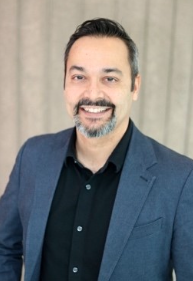The MSU IT Speaker Series features a variety of influential and informative speakers in support of IT’s mission to provide exceptional experiences to MSU through education and outreach. Presentations are offered at no cost for all of campus. Please share this series with your MSU peers and be sure to check back here for details about upcoming speakers.
Technology, Pedagogy, Ethics, and the Post-Pandemic University
As higher education professionals who support institutional goals of access and innovation, we have an obligation to consider not just the security, privacy, cost, and support of educational technologies, but also their ethical and pedagogical dimensions. The critical need for this approach has become even more evident in recent years as universities have struggled to respond effectively to waves of change including emergency remote instruction and, more recently, the advent of generative artificial intelligence. From the use of surveillance technologies for remote exam proctoring and the use of learning analytics in support of student persistence and performance, this talk will make a case for the importance of partnering with our faculty, administrators, and students to advance the ethical use of educational technology within our institutions.
About Dr. Rajiv Jhangiani
Dr. Rajiv Jhangiani serves as the Vice Provost for Teaching and Learning at Brock University, in Ottawa, Canada, where he oversees the Centre for Pedagogical Innovation and Co-op, Career, and Experiential Education while advancing equity within the university’s academic operations. Dr. Jhangiani is a tenured faculty member in the Departments of Educational Studies and Psychology and is affiliated with the Social Justice Research Institute and the Social Justice and Equity Studies MA program. He leads the Inclusive Education Research Lab, where his scholarship is supported by the Social Sciences & Humanities Research Council of Canada and focuses on open educational practices, inclusive teaching, and ethical approaches to educational technologies. He holds a doctorate in Social and Personality Psychology from the University of British Columbia.
Humanizing Online Learning
Karen Costa leads educators and learners through a 60-minute interactive learning experience to explore the power of connection-rich learning environments and focuses on simple and sustainable teaching that benefits faculty and students.
About Karen Costa
Karen Costa is a faculty development facilitator (and proud adjunct faculty) specializing in online pedagogy, trauma-aware higher education, and supporting ADHD learners. Karen loves leading faculty learners through fun, interactive, and supportive professional development experiences. Karen’s first book, 99 Tips for Creating Simple and Sustainable Educational Videos, focuses on helping faculty and teachers make creative use of videos in their classrooms.
Karen graduated from Syracuse University with a B.A. in sociology, and she holds an M.Ed. in higher education from the University of Massachusetts-Amherst and a CAGS in educational leadership from Northeastern University. Karen has a Professional Certification in Trauma and Resilience (Levels 1 and 2) from Florida State University, a Trauma-Informed Organizations Certificate from the University of Buffalo’s School of Social Work, and a Certificate in Neuroscience, Learning, and Online Instruction from Drexel University. Karen is also a certified yoga teacher. She lives in Massachusetts with her family. Connect with Karen at 100faculty.com.






